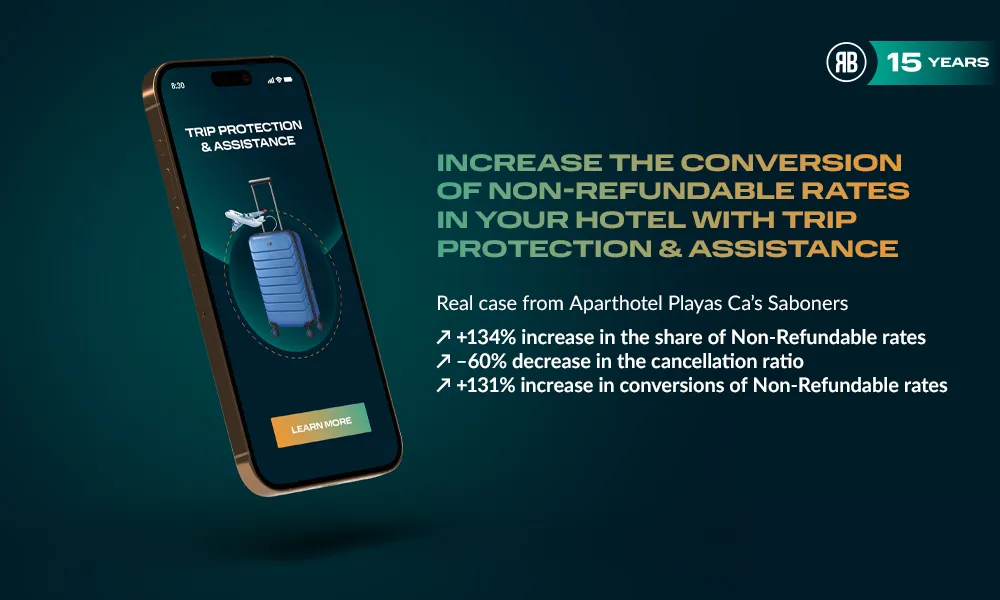IA Overview and IA Mode: How Google is redefining SEO in 2025 and what tourism sector brands can do
News
April 29, 2025

Google's evolution towards increasingly AI-assisted search is not an isolated experiment, but a structural transformation that is already changing the way users interact with information.
Since mid-2024, and especially in 2025, the deployment of functionalities such as IA Overview and IA Mode redefines both the search experience and the rules of SEO.
At Roiback, as specialists in hotel technology and digital visibility, we have thoroughly analyzed these changes. This article details what these tools consist of, how they affect organic traffic, and what brands—especially in the tourism sector—can do to not lose relevance in Google's new paradigm.
What is IA Overview?
IA Overview (AI-generated Overview) is a feature already available in more than 100 countries—including Spain since March 2025. It is automatically activated in certain searches and offers AI-generated summaries at the top of the results, before the traditional links. The AI extracts content from multiple reliable sources to offer the user a quick, clear, and visually enriched response, without needing to navigate between different websites.
This represents a profound change: many queries are resolved directly in the search engine, which decreases the number of clicks to websites. According to Google, the aim is to improve the user experience. For SEO professionals, however, it implies competing not only to appear on the first page but also to be chosen as a source within these AI-generated summaries.
What is IA Mode?
IA Mode represents an even more ambitious step. Currently available only in the United States for Google One AI Premium users, this feature completely transforms the search into a conversational and immersive experience. The user accesses an alternative tab within Google Search, where the response is generated entirely by AI, without showing the typical blue links or organic results.
Thanks to the Gemini 2.0 model, IA Mode allows you to perform complex queries in natural language, chain questions, and obtain responses adapted to the context, enriched with images, maps, text fragments, and structured data. This feature is still in an experimental phase, but Google has already made it clear that it will mark the roadmap for the search of the future.
Why is it so relevant for SEO?
Because it changes the role of websites within the search ecosystem. Until now, the objective of SEO was to achieve a prominent position in the organic results. Now, the challenge is to be a reliable source for Google's AI. That is, the content we produce must not only be well-positioned but must also meet a series of much more demanding criteria:
- Thematic depth: AI looks for information that clearly answers complex questions.
- Authority and veracity: Google prioritizes sources with verified, updated content signed by real experts (E-E-A-T).
- Clear semantic structure: headings, content hierarchy, structured data, and correct markup are now more important than ever.
- Natural language: AI selects texts that can be easily integrated into a fluid and coherent response.
In addition, the impact on traditional SEO indicators is already palpable. The CTR decreases in many queries because the response appears directly in the SERP. At the same time, new metrics are beginning to emerge, such as appearances in AI blocks, still not very visible in tools like Google Search Console, but key to interpreting real visibility.
How does this affect the hotel and tourism sector?
In tourism, where the organic channel is still a fundamental source of direct traffic acquisition, these changes require a complete revision of strategies. Informational searches such as “best hotels in Mallorca” or “when to travel to Menorca” can be resolved entirely within the IA Overview, with fragments taken from media, blogs, or platforms with greater semantic authority.
This implies that:
- Hotel websites must go beyond transactional content. They must position themselves as a source of useful and reliable information for the traveler.
- OTAs and large media outlets could gain even more visibility if brand content is not adequately worked on.
- The structure of the funnel changes: the user can go from inspiration to action without leaving Google's generative search.
What are we doing from Roiback?
At Roiback, we are not only observing this transformation, but we are already addressing it from the ground up. Some of the actions we have incorporated include:
- Semantic content review: we audit each page to ensure that it clearly responds to the user's search intent.
- Advanced application of structured data (Schema.org): we mark not only products and services but also key elements such as hotel advantages, flexible policies, locations, and outstanding opinions.
- Team training: we train our specialists to work under the same strategy adapted to generative environments.
- Real-time source integration: we connect rates, availability, and services with tools that allow AI to extract updated and reliable information.
Conclusion: adapt or be left out
SEO does not disappear, but it does become more complex, more technical, and more demanding. Google no longer simply rewards the content that best positions, but the content that best responds. And that implies a change of mentality: we no longer optimize only for search engines, but also for generative models capable of deciding what to show and what not to show.
At Roiback, we believe this is the time to act. Brands that anticipate, that build a digital presence based on utility, authority, and structure, will not only survive this change. They will lead it.
Because in the new era of SEO, the winner is the one who generates answers, not just the one who chases clicks.
Read more







